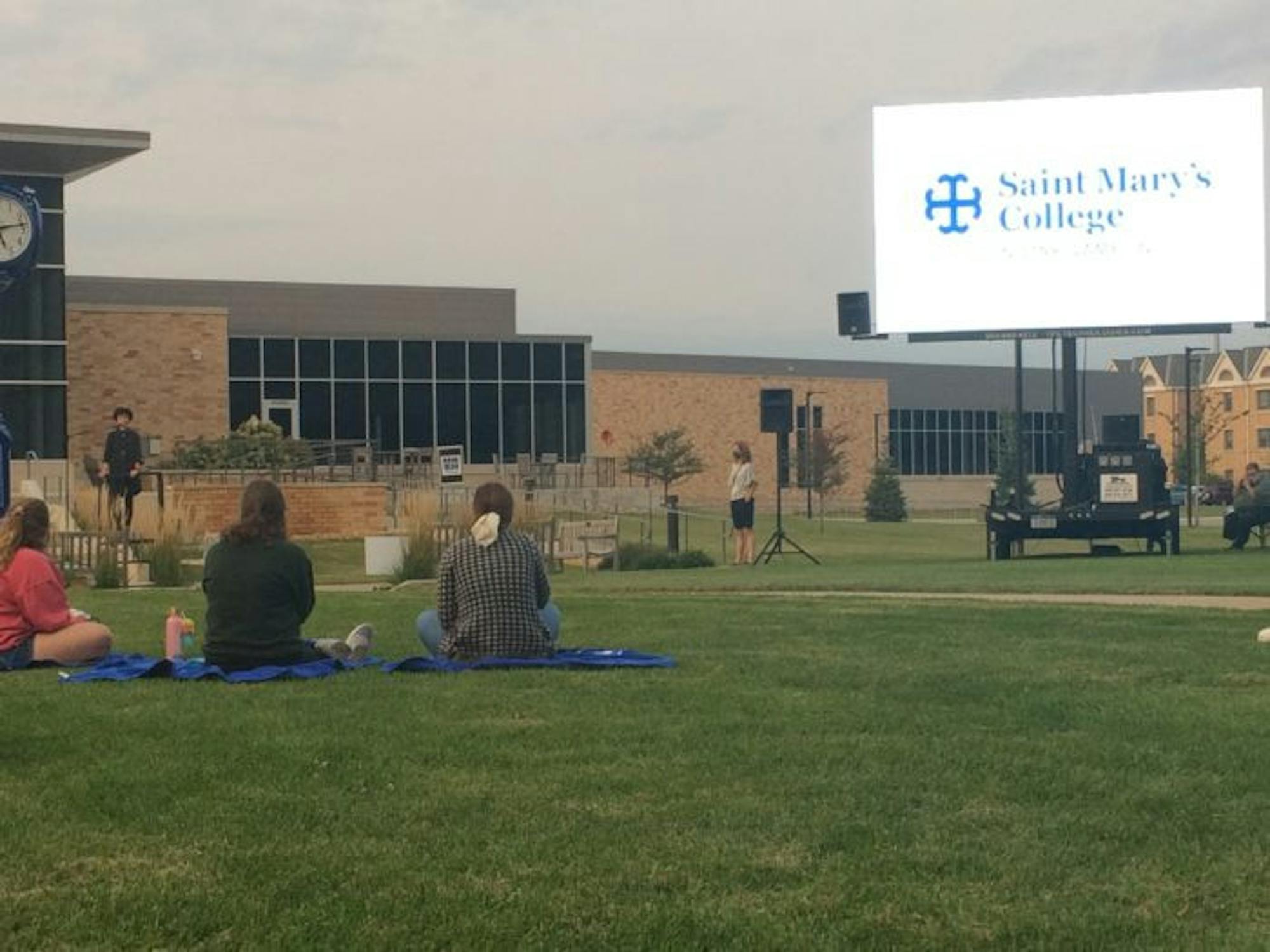
She walked into her first formal classroom at age 17, and has not stopped learning since. New York Times bestselling author Tara Westover addressed the Saint Mary’s community Wednesday evening during the annual Christian Culture Lecture, and spoke to her path to becoming educated.
College president Katie Conboy facilitated the discussion which was live streamed to the College’s website.
Westover spoke to the importance of surrounding oneself with people from different backgrounds — whether that be religiously, politically or otherwise.
“I benefited tremendously from my experience [at Brigham Young University] as it was the first time in my life I had access to people from all over the United States,” she said.
Westover attributed some of her biggest moments of education through conversations she had with her peers at Oxford who shared different opinions and beliefs especially regarding hot issue topics such as homophobia.
“Sometimes I think we get confused about what education is,” Westover said. “We think it's about finding a bunch of facts, we think that an educated person is a person who can regurgitate a whole bunch of information. When in reality education, in its best form, is curiosity.”
According to Westover, this curiosity changes how you interact with people you disagree with.
“I think if you're an educated person what you're really trying to get is the ability to see things from another point of view and see the world from different perspectives, and understand why people are the way they are even if they're not like you.”
Westover acknowledged that a part of learning is understanding boundaries before purposefully breaking them.
“The fact of the matter is that you can't be a great writer if you're too much of a stickler about punctuation,” she said. “But if you don't understand why the rules exist, you can't be any kind of writer.”
Westover compared the cycle of education and relationships with professors to that of children and parents.
"First you adore them, then you hate them and then you respect them", she said.“... You can really only start to be your own person when you get to a perspective that says that they [parents, professors] are neither always right, nor always wrong.”
Through her experiences of imposter syndrome and abuse, Westover cultivated the emotional resilience she has today.
“Abuse totally collapses your sense of self,” she said. “What gets attacked is your sense of self and sense of self worth.”
Regarding feelings of not belonging in the academic sphere, Westover advised remembering that everyone else similarly feels out of place.
“I also think it helps to know that everyone feels overwhelmed, and it always gets better,” she said. “Your life would be very boring if nothing ever intimidated you. The panic you’re feeling? That’s actually stretching, and it’s a good thing and it eventually goes away.”
Conboy added that while much of Westover’s story is unique to her, many of the questions fielded by students for the evening came from a place of lived experiences influenced by what they had read in Westover’s memoir.
Westover used the analogy of an emotional keyboard to explain how individuals can grow through trauma and develop empathy for themselves in order to play any note on the keyboard they want.
“Trying to have empathy for yourself is one of the hardest things to do and it's one of the most important things to do,” she said. “If you can't empathize with younger versions of yourself you're going to find that in your life you're going be much harsher with people than you need to be, because they remind you of younger versions of yourself. You're going to end up living half a life — a life with half of your emotions.”
Given that the Christian Culture Lecture was created for an individual in the humanities to speak on the influence of Christianity on culture, Westover spoke to how she sees faith align with education.
“I think that when I was younger, faith was almost kind of a mechanism of my education,” she said. “I learned how to read largely so I could read the scriptures. I learned to write from the scriptures.”
Westover acknowledged the bible as a complex work with a complex style of writing, and attributed that training of reading and rereading things she did not totally understand to her later success in her studies.
She then went on to discuss the role a belief system plays in education.
“Toward the end of my time at BYU, I began to realize I didn't actually believe in some of the things I had previously believed in,” Westover said. “The thing about beliefs that we forget sometimes is that they are often not choices. You can't decide what you believe. I really struggled to accept that my beliefs had changed and I kind of just didn't want to deal with it.
Westover then changed the way she considered the way she considered the world around her.
"Eventually what happened is that I did come to accept it, and I had to start reconstructing a new ethical world for myself.”
The lecture concluded with talk on the pandemic, and Westover spoke to the privilege she experiences as her daily life has been minimally affected by the pandemic.
“The effects of the pandemic are going to hit people disproportionately based on race, education level, socioeconomic status,” she said. “I just hope it makes us more alive and awake to the fact that we do have, in some ways two Americas, two circles of living.”
Westover talks faith, emotional resilience during Christian Culture Lecture
At an outdoor Christian Culture Lecture viewing event, President Katie Conboy addressed students prior to the pre-recorded lecture.









